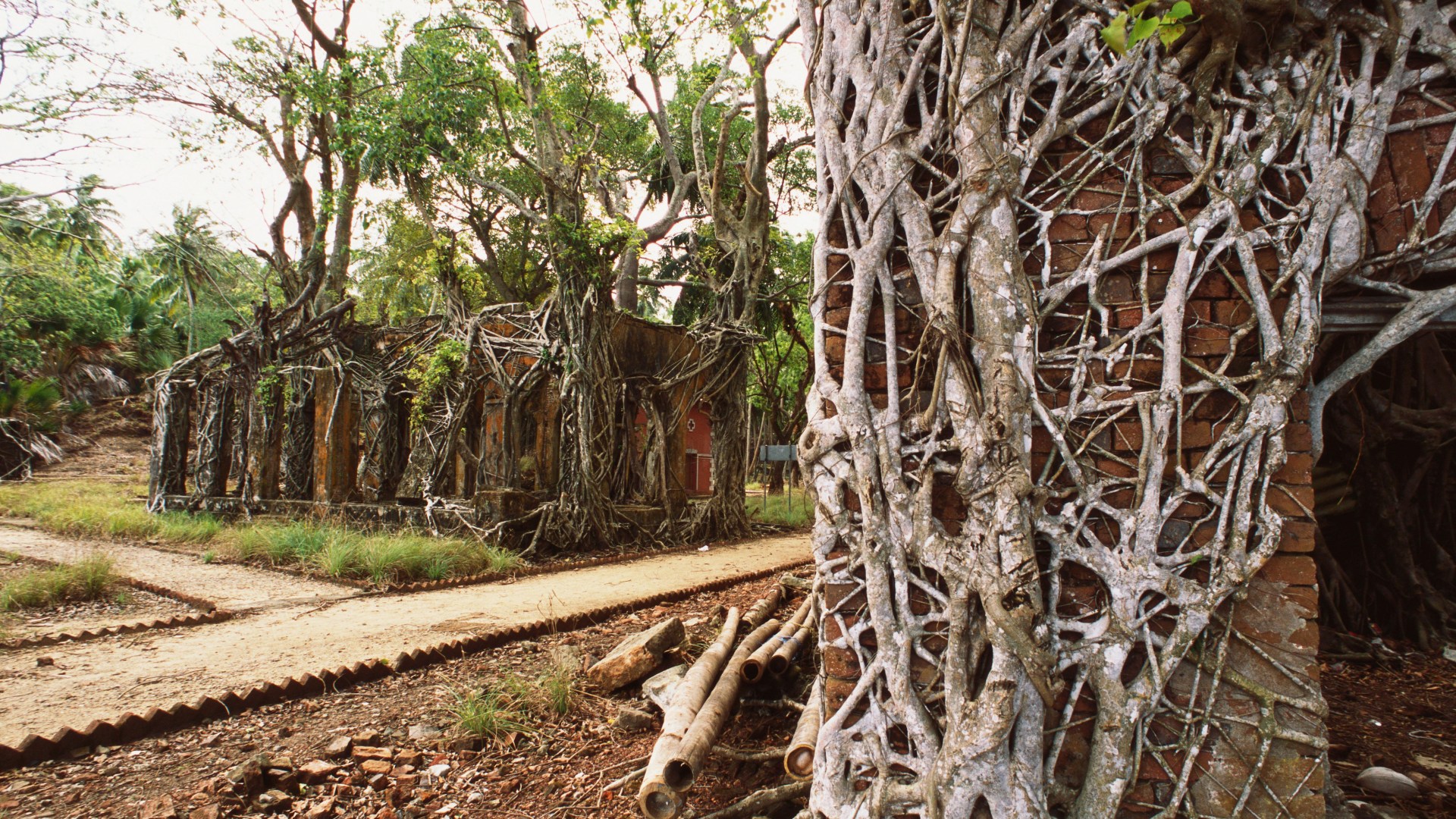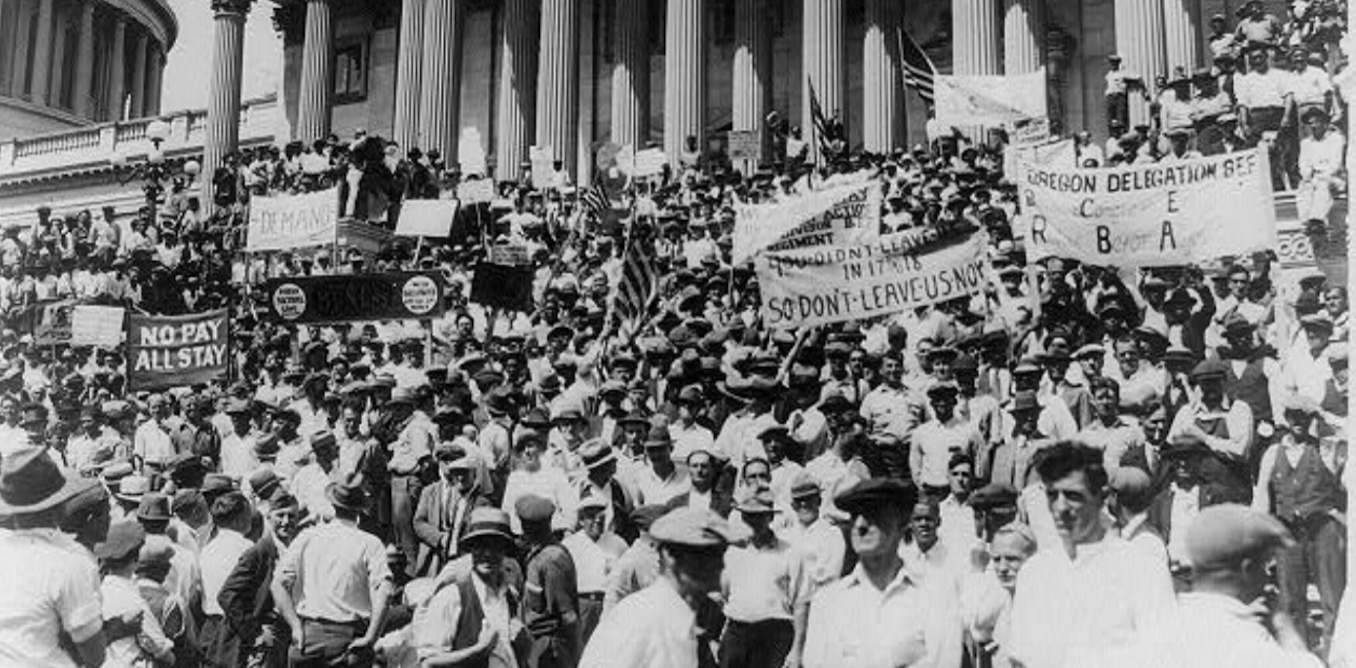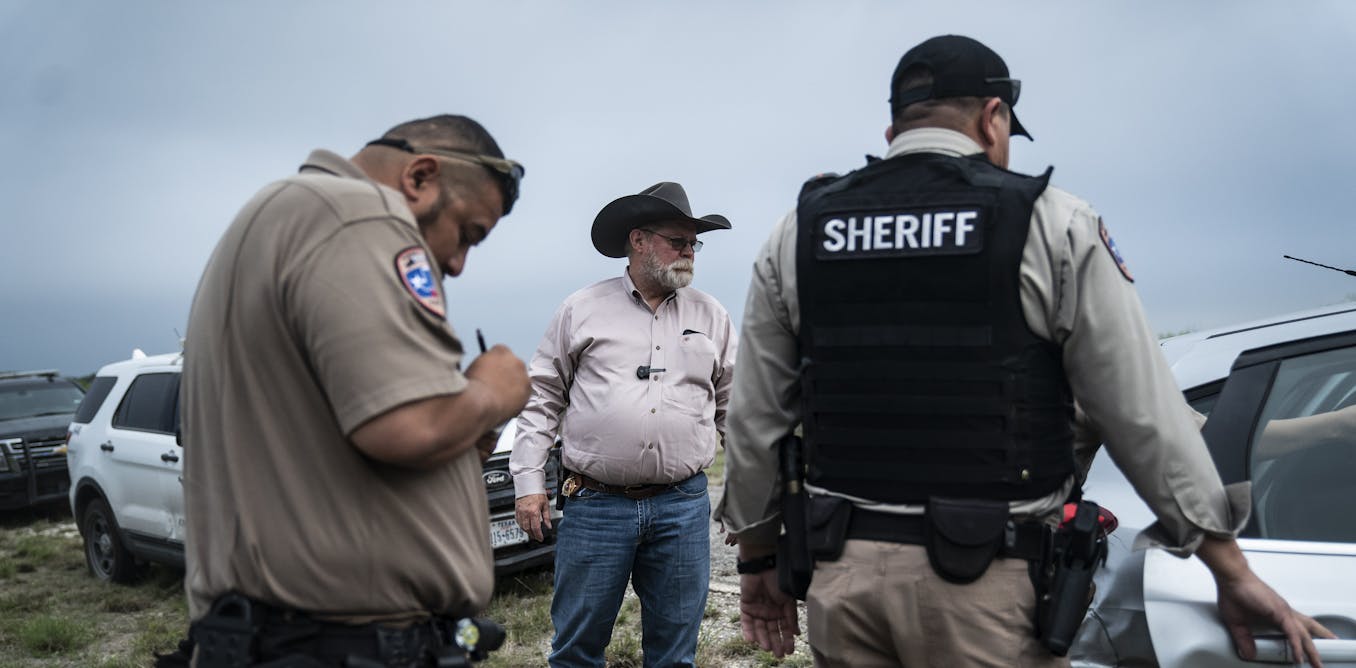AN abandoned British island colony with crumbling buildings and rotting churches has a dark history.
Built by rebel prisoners who were subjected to cruel punishments and sick experiments the eerie spot was deserted long ago.

11

11

11

11

11
Ross Island, which lies in the Bay of Bengal off the Indian Ocean, was once home to hundreds of Indian convicts as part of a British penal colony, despite measuring less than 0.2 sq miles.
But the picturesque and scenic location is a stark contrast to the horrors that happened there.
The island was used as an experimental station for various methods of torture and medical tests During World War II.
Chilling tests reported during the war included disease injections, controlled dehydration and biological weapons testing.
read more on abandoned places
The location was chosen as the site for the prison in 1858 because it had a large supply of pristine water.
But upon arrival, the Island was overrun by thick vegetation, so officers made it the duty of convicts to cleanup the tangled forest while they stayed on ships nearby.
In a bid to mask the gloomy atmosphere brought on by atrocities carried out on the land officers developed the archipelago into a glittering paradise.
Lavish bungalows, tennis courts, grand mansions, ballrooms, a bazaar, and even a subordinates club used solely for the entertainment of junior officers, were among many buildings constructed across the island.
But now, almost eight decades after the penal colony was shut nature has reclaimed the once bustling island.
A worm-eaten roof covered in rotten tree roots is all that’s left of the Commissioner’s bungalow, and a the once pristine stained-glass windows of a Presbyterian church are shattered.
Deer species which were introduced into the archipelago by Brit officers in the early 1900s are now the only inhabitants of the island, alongside untamed rabbits.
The power station, which features a diesel generator, once lit up the remote island, but now has been shrouded by dense vegetation and crumbling walls.
The once exclusive settlement for high-ranking officers has been dramatically reclaimed by nature.
Brits abandoned the island in 1942 after an earthquake struck its lands a year before.
Remaining Brit troops fled after the Japanese invaded, but after the end of the Second World War, Ross Island returned to British rule.
In 1947, after India gained independence, the island was finally abandoned.

11

11

11

11

11

11




